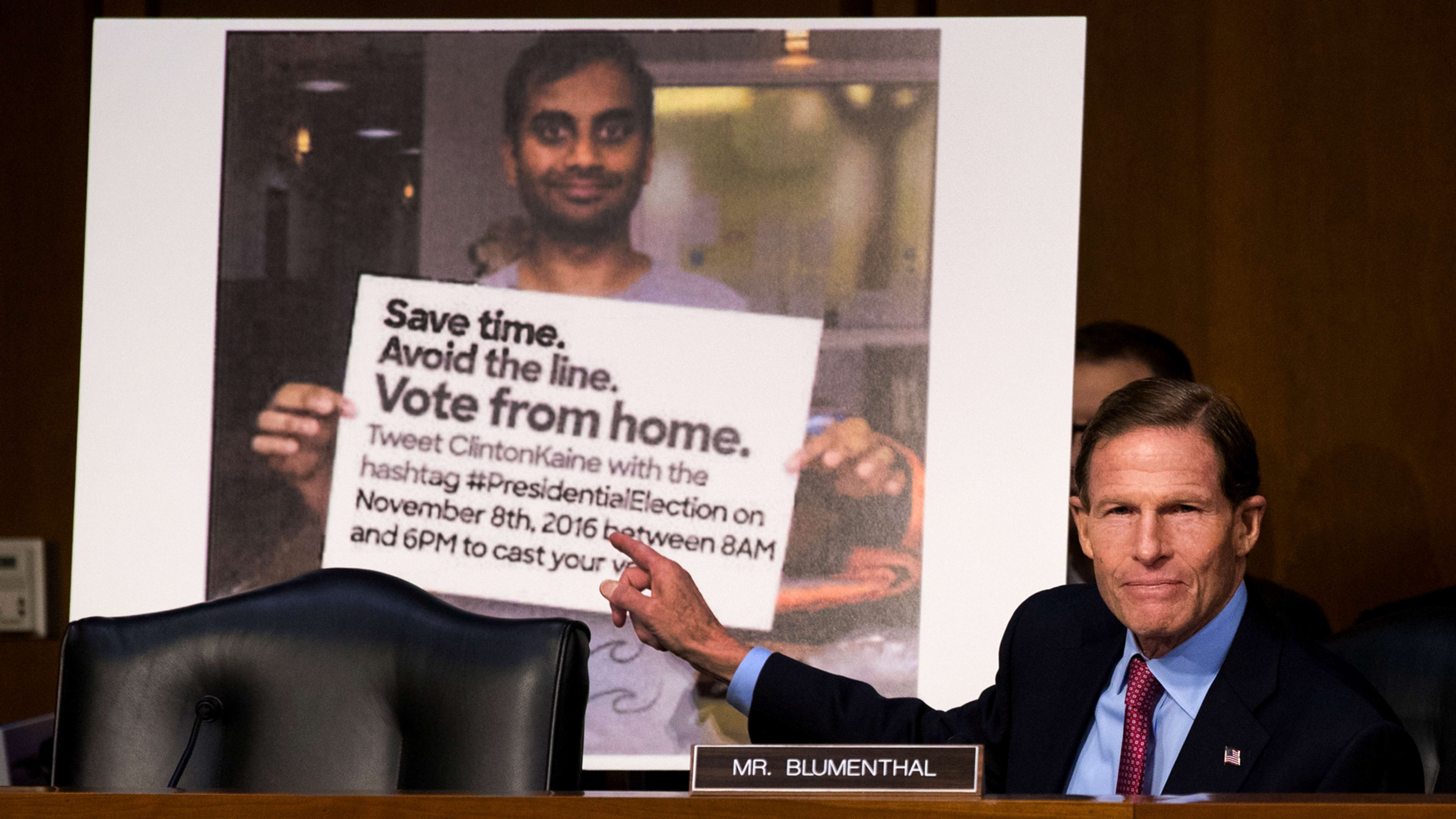Today is the last day of a public comment period opened by the Federal Election Commission (FEC) to hear from lawmakers, tech companies, and the general public about the prospect of requiring paid political ads placed on social media to clearly display the people or groups who purchased them. So far, the agency has reportedly received over 150,000 comments from the public.
After a year of disclosures about foreign operatives anonymously purchasing carefully targeted social media ads designed to influence the 2016 election, new pressure has mounted on the FEC to reexamine its rules. Ads placed on Facebook and Google platforms during the 2016 election purported to come from domestic advocacy groups and focused on GOP voter hot-button issues like the Black Lives Matter Movement and gun control.
Thousands of the ads were released after Facebook and Google attorneys appeared before Congress October 31 to answer questions about possible Kremlin-backed meddling. But many questions remain, including about the full extent of the misinformation campaign: about two hundred thousand messages were pushed out in total, many not as ads but as regular posts. Facebook-owned Instagram was a large and largely unacknowledged vehicle for the Russian effort, and many posts continue to spread on the platform even now.
The FEC has been wrestling with the question of regulating political ads in the age of social media for the past six years. The last time it completed a comprehensive upgrade of its advertising rules was in 2006, when social media was still in its infancy.
Earlier this year Congress called on the FEC to explore ways of putting social media ads in the same regulatory frame as print, radio, and TV ads, which already require attribution. A group of 15 Democratic Senators led by Mark R. Warner (D-VA), Amy Klobuchar (D-MN), and Claire McCaskill (D-MO) sent a letter to the FEC today asking for virtually the same thing.
In another letter from Congress last week, 18 members urged the FEC to think bigger than just a small regulatory tweak, calling for a complete revamp of the regulatory regime in light of a radically changed media landscape. (The fact that many of the Russian messages were not sent as ads per se raises questions about the efficacy of a policy targeting only ads, for instance.) And the Electronic Privacy Information Center (EPIC) filed a comment saying that just requiring a “paid for by” disclaimer isn’t enough; the group wants the FEC to also require the ad buyer to disclose how they targeted the ads.
Meanwhile, Congress may write the new social media attribution requirements into law. The Honest Ads Act, introduced last month by Senators Warner, Klobuchar, and McCain (R-AZ), is said to have wide bipartisan support.
Related: Instagram Played A Much Bigger Role in Russia’s Misinformation Campaign
So far, neither Facebook nor Google has come out against the FEC’s proposed rulemaking on social media ads. Google filed a comment with the FEC in which it asked for more information, while Facebook is yet to file a comment.
If you’d like to file your own comment with the FEC, you can do so here or here, before midnight on Monday night, and reference “REG 2011-02.”
Recognize your brand’s excellence by applying to this year’s Brands That Matter Awards before the early-rate deadline, May 3.
